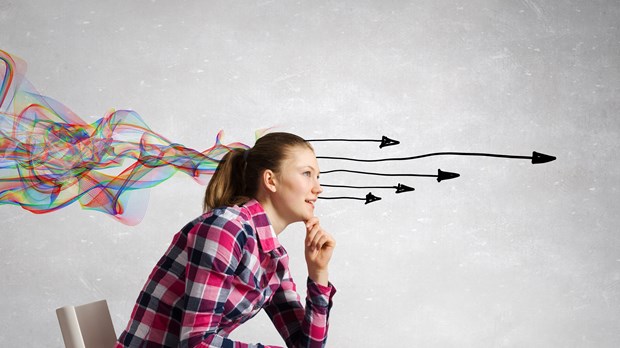Everyday Choices

It sounds great to talk about healing the world, but it's a tad harder to figure out how to do so. We may not think that the ways we live have much effect on the lives of others, but our circle of influence is actually much larger than we think.
The youth pastor I had as a teenager often said, "Every decision has a price tag"—probably to scare us away from behaviors like premarital sex and drinking, but its application can go much further. Every decision we make does carry a price, but that price is often paid by those who are affected by our actions. Every decision we make is an ethical decision, which forces us to choose whether or not we will act out of love or respect for people who are created in the image of God.
For example, by buying that banana my daughter ate for breakfast, I support everything that banana represents. If it was grown by farmers who were kept in near-slave-like conditions, paid pennies a day, exposed to hazardous chemicals, and beaten by hired terrorists if they protested their work conditions, I am supporting those things.
Or how about my T-shirt? If a 14-year-old girl, who is forced to work in a factory because her parents owe money to the owner (which they borrowed to pay for medical bills), made my T-shirt, and she is paid, maybe, five cents a shirt (that I paid $19.99 for) by the owner who also forces her to sleep with him in order to keep her job, then I am supporting her exploitation and rape.
Don't get me wrong: I know no one reading this article consciously supports slavery, terrorism, exploitation, or rape. But we vote with our money, spent on such bananas or T-shirts, and we make the ethical decision to support those things whether we intend to or not. We effectively tell those workers that our shopping habits and consumer needs are more important than their dignity. The cost they are paying is the price tag of our decisions.
Living justly involves not only an awareness of the needs of others, but also cares for their needs. It forces us to take a hard look at how our everyday choices (what we wear, what we eat, what we drive, etc.) affect others. As Isaiah 58:9-12 in The message mentions, the justice God wants from us involves being "generous with the hungry," but also getting "rid of unfair practices." We will still need to be consumers, but instead of becoming complicit in injustice, we can promote ethical consumption. Ethical consumption implies that we will apply our moral values and ethical standards to our consumer habits. We don't opt out of a necessary system, but we attempt to redeem it as we live by a more consistent ethic.
Our lives are not just a series of unrelated tasks and errands with the occasional leisure activity thrown in when there's time. We are part of a bigger picture. Our local, everyday choices reverberate around the world. And at the center, pushing and informing all of those choices, is our faith. Life suddenly becomes a lot more complicated. Acting justly means becoming aware of problems in the world; it means changing how we shop, dress, and drive; it means seeing our every action as an ethical choice.
The pain and suffering in this world are immense, as are the many systemic injustices that perpetuate cultures of poverty and oppression. To change the world, we must start somewhere. It can be easy to sign a petition, wear a bracelet, put a banner on our blog or a bumper sticker on our car, or simply give money to help with a cause, but to really start effecting change we have to tweak the way we live.
But justice is complicated. Sometimes it's hard to know how our decisions affect others, and it's even harder to discover loving alternatives. To make things worse, acting justly involves some serious lifestyle changes. That's okay. The point isn't to instantly create a perfectly just world with the wave of some magic wand. Justice is a journey that is different for every person, and it proceeds at differing speeds. There is no need to get overwhelmed. If we each start small and promote justice where we can, when we can, that's the beginning of the revolution of love. All we have to do is take that first step into the call that Jesus gave us to love others. And then take the next, and the next, and the next …
{Adapted from Everyday Justice: The Global Impact of Our Daily Choices. Copyright © 2009 Julie Clawson. Used by permission of InterVarsityPress. www.ivpress.com }
Subscribe to TCW's free email newsletter at this link for weekly updates and chances to win free books and music downloads.
Read more articles that highlight writing by Christian women at ChristianityToday.com/Women
 Read These Next
Read These Next
 Editor's NoteMove into the world with eyes wide open.
Editor's NoteMove into the world with eyes wide open. Empowering Women in Agriculture to Help Eradicate HungerThe surprising power of pineapples
Empowering Women in Agriculture to Help Eradicate HungerThe surprising power of pineapples









 Homepage
Homepage